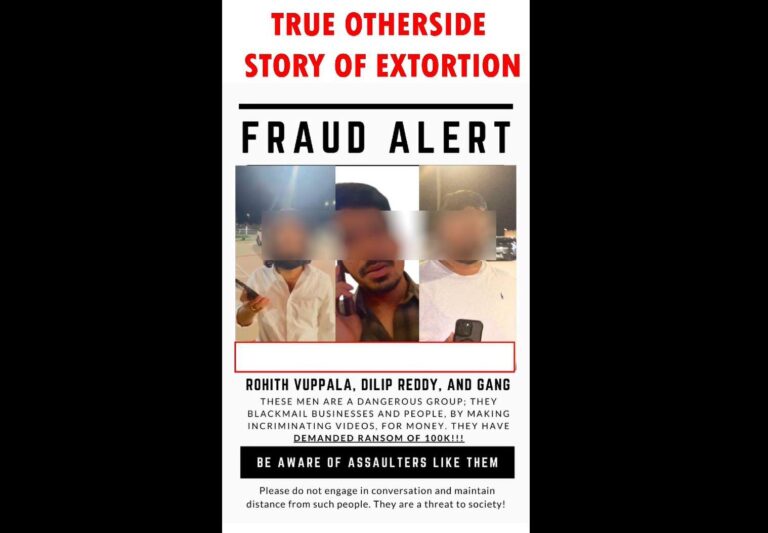Extortion Targeting Telugu Students in Dallas: A Growing Concern – M9.news
The Telugu student community in Dallas has recently been shaken by alarming reports of an organized extortion network preying on young international students. This troubling development has brought to light the vulnerabilities faced by these students, who often find themselves isolated and unfamiliar with local legal systems. As investigations unfold, the incident highlights the urgent need to address the safety and mental well-being of Telugu youth studying abroad amid rising criminal exploitation.
Extortion of Telugu Students in Dallas: A Deepening Crisis
In Dallas, a calculated extortion scheme has ensnared numerous Telugu students, many of whom are pursuing higher education. Exploiting their limited knowledge of American laws and social norms, the perpetrators coerced victims into paying substantial sums under threats of harm or exposure. The intimidation was often carried out through persistent phone calls and social media harassment, creating a climate of fear that discouraged students from seeking immediate assistance.
Highlights of the Extortion Operation:
- Victims predominantly aged 18 to 25, enrolled in various academic programs.
- Extortion amounts demanded ranged between $2,000 and $10,000 per student.
- Suspected involvement of organized crime syndicates.
- Joint efforts initiated by local law enforcement and university security teams.
| Aspect | Information |
|---|---|
| Confirmed Victims | 15 individuals |
| Current Status of Investigation | Active and ongoing |
| Law Enforcement Actions | Multiple arrests executed |
| Available Support | Counseling and legal assistance provided |
Academic Community Reeling from Extortion Impact
The recent extortion cases have deeply unsettled the academic institutions in Dallas, prompting urgent discussions on student safety and well-being. Many Telugu students, who travel from India with hopes of academic and professional advancement, now face increased anxiety that threatens their educational experience and social integration. Student bodies and faculty alike have expressed concerns about the psychological toll and the erosion of trust within the campus environment.
Primary Issues Highlighted by Educational Leaders:
- Calls for enhanced security protocols on and around campuses.
- Development of specialized mental health services for international students.
- Strengthened partnerships between universities and local police to deter future crimes.
| Area Affected | Impact Observed | Institutional Measures |
|---|---|---|
| Student Security | Increased fear and vulnerability | Augmented campus patrols and surveillance |
| Psychological Health | Elevated stress and anxiety levels | Expanded access to counseling services |
| Community Cohesion | Diminished trust among student groups | Programs promoting inclusivity and dialogue |
Responses from Authorities and Educational Institutions
In response to the escalating extortion threats, Dallas law enforcement agencies have intensified their collaboration with university security departments. Increased patrols now focus on areas with high student residency and campus surroundings. Furthermore, outreach initiatives have been launched to educate students on safety practices and encourage prompt reporting of suspicious behavior. The Dallas Police Department has also introduced dedicated helplines and online platforms specifically designed to assist international students.
Local universities have proactively implemented safety programs, including workshops on personal security and fraud awareness. Partnerships with police have facilitated the deployment of safety apps and nighttime escort services, enhancing student protection during vulnerable hours. Below is an overview of recent safety enhancements at prominent Dallas universities:
| Institution | Safety Initiative | Launch Date |
|---|---|---|
| University of Texas at Dallas | Round-the-Clock Campus Escort Service | March 2024 |
| Southern Methodist University | Introduction of Personal Safety Mobile App | April 2024 |
| Texas Women’s University | Monthly Safety Awareness Workshops | February 2024 |
Student Protection Strategies and Available Support
To combat the distressing extortion incidents affecting Telugu students, educational institutions and community groups have introduced comprehensive preventative strategies. Mandatory orientation sessions now cover students’ legal rights, personal safety measures, and cybersecurity awareness. Enhanced campus monitoring and streamlined reporting systems aim to ensure swift intervention against harassment or threats. Peer-led support networks are also encouraged to cultivate a vigilant and supportive student community.
Support services have been broadened to offer immediate help, including psychological counseling and free legal advice. The table below lists essential resources accessible to students in the Dallas area:
| Resource | Service Provided | Contact Information |
|---|---|---|
| Dallas Student Safety Helpline | 24/7 Crisis Support and Reporting | +1 (214) 555-EXT0 |
| University Legal Aid Center | Complimentary Legal Consultations | legalhelp@university.edu |
| Community Outreach Initiative | Workshops and Peer Counseling | info@dallasoutreach.org |
- Routine safety evaluations conducted on campus and surrounding neighborhoods
- Anonymous reporting tools to empower victims to report without fear of retaliation
- Ongoing collaboration with law enforcement to enhance patrol frequency and response times
Final Thoughts on Protecting Telugu Students in Dallas
The recent wave of extortion targeting Telugu students in Dallas highlights a critical need for heightened awareness and protective measures within immigrant and academic communities. As investigations proceed, it is vital for students to remain informed about their rights and for institutions to strengthen their safety frameworks. Through unified efforts and continued vigilance, it is possible to curb such exploitative activities and foster a secure environment where international students can thrive academically and socially.







